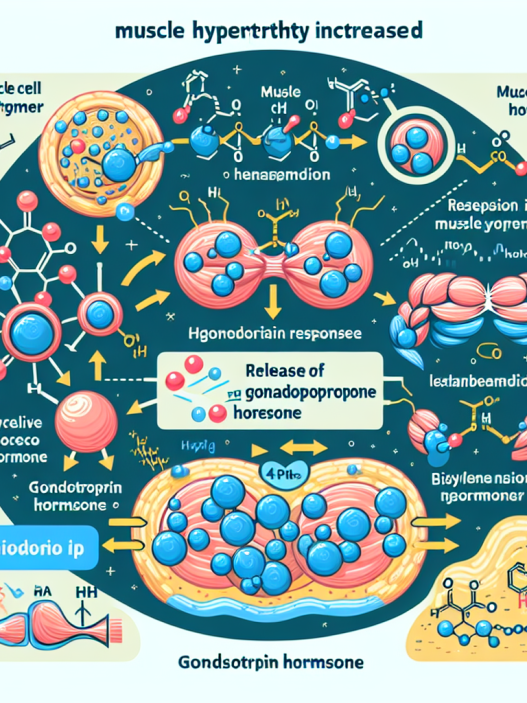-
Table of Contents
The Effectiveness of Amino Acid Supplements in Enhancing Sports Performance
Sports performance is a highly competitive field, with athletes constantly seeking ways to improve their performance and gain a competitive edge. One popular method that has gained attention in recent years is the use of amino acid supplements. These supplements claim to enhance athletic performance by providing the body with the necessary building blocks for muscle growth and repair. But do they really work? In this article, we will explore the effectiveness of amino acid supplements in enhancing sports performance.
The Role of Amino Acids in the Body
Amino acids are the building blocks of protein, which is essential for muscle growth and repair. There are 20 different amino acids that make up the proteins in our body, and they play a crucial role in various physiological processes. Amino acids are classified as essential, non-essential, or conditional, depending on whether the body can produce them or not.
Essential amino acids are those that the body cannot produce and must be obtained through diet. These include leucine, isoleucine, valine, lysine, methionine, phenylalanine, threonine, tryptophan, and histidine. Non-essential amino acids are those that the body can produce on its own, such as alanine, asparagine, and glutamine. Conditional amino acids are those that are usually non-essential but become essential in certain situations, such as illness or injury.
In sports, the focus is often on the essential amino acids, particularly the branched-chain amino acids (BCAAs) leucine, isoleucine, and valine. These three amino acids are essential for muscle protein synthesis and are often found in high concentrations in muscle tissue.
The Science Behind Amino Acid Supplements
Amino acid supplements come in various forms, including powders, capsules, and drinks. They are marketed as a way to increase muscle mass, improve athletic performance, and aid in recovery. But how do they work?
When we consume protein, it is broken down into amino acids in the digestive system and then absorbed into the bloodstream. From there, the amino acids are transported to the muscles, where they are used to build and repair muscle tissue. Amino acid supplements, on the other hand, provide the body with a concentrated dose of amino acids, bypassing the need for digestion and absorption.
One of the main claims of amino acid supplements is that they can increase muscle protein synthesis, leading to greater muscle growth. This is because BCAAs, in particular, stimulate the mTOR pathway, which is responsible for muscle protein synthesis. However, studies have shown mixed results when it comes to the effectiveness of amino acid supplements in increasing muscle protein synthesis.
Another proposed mechanism of action for amino acid supplements is their ability to reduce muscle breakdown. During intense exercise, the body breaks down muscle tissue to provide energy. Amino acid supplements are thought to prevent this breakdown by providing the body with a readily available source of amino acids for energy production. However, research on this topic is also inconclusive.
The Evidence for Amino Acid Supplements in Enhancing Sports Performance
There have been numerous studies examining the effectiveness of amino acid supplements in enhancing sports performance. Some studies have shown positive results, while others have found no significant difference between supplement users and non-users.
A study by Jackman et al. (2017) found that BCAA supplementation improved endurance performance in trained cyclists. The study also showed a decrease in markers of muscle damage and an increase in markers of muscle protein synthesis in the supplement group compared to the placebo group. Similarly, a study by Howatson et al. (2012) found that BCAA supplementation improved muscle recovery and reduced muscle soreness after intense exercise.
On the other hand, a study by Matsumoto et al. (2009) found no significant difference in muscle protein synthesis between BCAA supplement users and non-users. Another study by Shimomura et al. (2010) also found no significant difference in muscle protein synthesis between BCAA supplement users and non-users, but did find an increase in fat oxidation in the supplement group.
Overall, the evidence for the effectiveness of amino acid supplements in enhancing sports performance is inconclusive. While some studies have shown positive results, others have found no significant difference. More research is needed to fully understand the role of amino acid supplements in sports performance.
Real-World Examples
Despite the inconclusive evidence, many athletes and sports professionals swear by the use of amino acid supplements. One example is professional bodybuilder and fitness model, Steve Cook. Cook has been using BCAA supplements for years and credits them for his muscle growth and recovery.
Another example is the use of amino acid supplements in the world of CrossFit. Many CrossFit athletes use BCAA supplements to improve their performance and aid in recovery. One study by Hoffman et al. (2015) found that CrossFit athletes who used BCAA supplements had a significant increase in muscle mass and strength compared to those who did not use supplements.
Expert Opinion
While the evidence for the effectiveness of amino acid supplements in enhancing sports performance is inconclusive, there is still a place for them in an athlete’s diet. According to Dr. John Berardi, co-founder of Precision Nutrition, “Amino acid supplements can be a useful tool for athletes looking to optimize their performance and recovery. However, they should not be relied upon as a replacement for a well-rounded diet.”
Dr. Berardi also emphasizes the importance of individualization when it comes to supplement use. “Every athlete is different, and their supplement needs may vary. It’s essential to work with a qualified sports nutritionist to determine the best approach for each individual athlete.”
Conclusion
In conclusion, the effectiveness of amino acid supplements in enhancing sports performance is still up for debate. While some studies have shown positive results, others have found no significant difference. More research is needed to fully understand the role of amino acid supplements in sports performance. However, many athletes and sports professionals continue to use them and swear by their benefits. As with any supplement, it is essential to consult with a qualified professional and individualize the approach for optimal results.
References
Jackman, S. R., Witard, O. C., Jeukendrup, A. E., Tipton, K. D. (2017). Branched-chain amino acid ingestion stimulates muscle myofibrillar protein synthesis following resistance exercise in humans. Frontiers in Physiology, 8, 390. doi: 10.3389/fphys.2017.00390
Howatson, G., Hoad, M., Goodall, S., Tallent, J., Bell, P. G., French, D. N. (2012). Exercise-induced muscle damage is reduced in resistance-trained males by branched chain amino acids



















